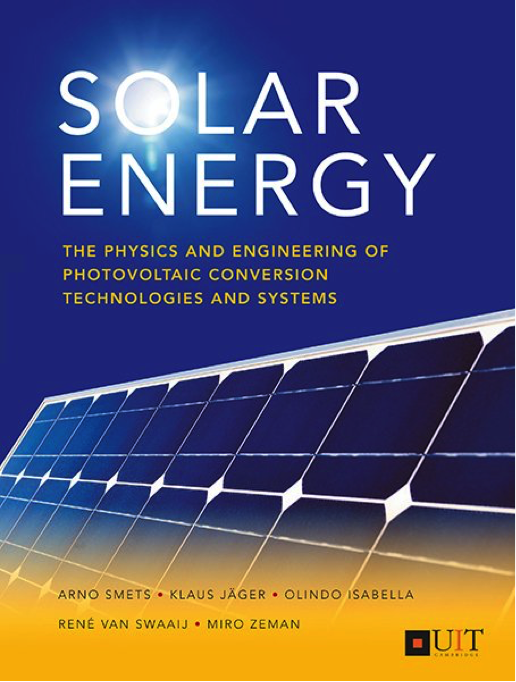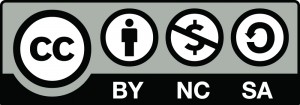Syllabus
PV1x Solar Energy Engineering: Photovoltaic Energy Conversion
Index
1. Introduction
1.1 Course overview
1.2. Learning objectives
1.3. What we expect from you
1.4. What you can expect from us/the course team
2. Course structure
3. ID Verified
4. Assessment & deadlines
5. Resources & Tools
1. Introduction
The key factor in getting more efficient and cheaper solar energy panels is the advance in the development of photovoltaic cells. In this course you will learn how photovoltaic cells convert solar energy into usable electricity. You will also discover how to tackle potential loss mechanisms in solar cells. By understanding the semiconductor physics and optics involved, you will develop in-depth knowledge of how a photovoltaic cell works under different conditions. You will learn how to model all aspects of a working solar cell. For engineers and scientists working in the photovoltaic industry, this course is an absolute must to understand the opportunities for solar cell innovation.
1.1. Course overview
This course is part of the Solar Energy Engineering MicroMasters Program designed to cover all physics and engineering aspects of photovoltaics: photovoltaic energy conversion, technologies and systems. We recommend that you complete this course prior to taking the other courses in this MicroMasters program.
This course PV1x: Photovoltaic Energy Conversion is one of the 5 courses in the MicroMasters Solar Energy Engineering. The course is designed to be completed within 11 weeks, if you devote around 10 hours per week to the course. The level of the course is graduate level and the course is English spoken.
To enjoy all the extra features opportunities offered by this course, and be able to obtain a certificate at the end, you can upgrade to the ID verified status. More information can be found in the ID-verified section of the syllabus. A Solar Energy Engineering MicroMasters Program Leaflet is also available.
1.2. Learning objectives
By the end of this course you will be able to:
- master semiconductor physics necessary to understand solar cell performance and engineering
- understand the optics and light management tools that are necessary to design an optimal solar cell
- understand the principles behind the potential loss mechanisms in photovoltaic devices
- design solar cell concepts, model all aspects of a working solar cell, understand the efficiency limits and design rules
1.3. What we expect from you
As an online student we expect you to be an active participant in this course, contributing to a positive atmosphere by questioning, sharing and helping out others, engaging in meaningful discussions where knowledge construction is revealed. We encourage people to post their question or discussions related to lectures, questions and assignments in the specific Discussions you'll find each week.
Please be aware that it's extremely important to follow the forum and collaboration guidelines, to respect the course policies and academic integrity.
Regarding deadlines, we expect you to keep on track in order to benefit from learning within a community. This course is meant to be a place where you learn with and from others. In this sense, we'd like you to experience collaboration and peer-feedback, so please make sure you follow with other participants in order to enrich the overall learning experience.
1.4. What you can expect from us/the course team
The e-Moderator and Lecturers will guide you throughout the course, launching the weekly content, promoting and engaging in discussions. Guidance and support will happen on a regular basis, mainly every day.
2. Course structure
The course is organized in 4 parts, divided over 8 weeks of content, plus 3 additional weeks for the final exam and resit. A brief summary of each week is presented below, with the release date in brackets.
Getting started (April 21)
In the getting started section you’ll get to know the course structure, get familiarized with the virtual learning environment, meet your fellow students and the e-moderator. These introductory activities should be completed in the beginning of the course, before you start with week 1.
:: Part 1. Introduction ::
Week 1. Introduction (April 25)
1.1 Energy
1.2 Solar radiation
1.3 The photovoltaic effect
1.4 Solar cell design
:: Part 2. Semiconductor physics ::
Week 2. Introduction to semiconductor physics (May 2)
2.1 Introduction to semiconductor physics
2.2 Semiconductor properties in equilibrium
2.3 Semiconductor properties in non-equilibrium
2.4 Charge carrier transport mechanisms
Week 3. Generation and recombination (May 9)
3.1 Introduction to generation and recombination
3.2 Continuity and ambipolar transport
3.3 Injection dependent lifetime
Week 4. The p-n junction (May 16)
4.1 P-N junction at thermal equilibrium
4.2 P-N junction under bias voltage
4.3 P-N junction under illumination
Week 5. Advanced concepts in semiconductors (May 23)
5.1 Advanced semiconductor physics
5.2 Metal-semiconductor junction
5.3 Heterojunctions
:: Part 3. Optics ::
Week 6. Light management I: refraction/dispersion/diffraction (May 30)
6.1 Introduction to optics
6.2 Light management basics
6.3 Refraction and dispersion
6.4 Diffraction
Week 7. Light management II: light scattering (June 6)
7.1 Scattering
7.2 The external quantum efficiency
:: Part 4. Engineering ::
Week 8. Solar cell engineering (June 13)
8.1 Shockley-Quiesser limit
8.2 Additional losses and conversion efficiency
8.3 Reducing losses
8.4 Third generation concepts
Practice Exam
Weeks 9 - END. Exam (June 20)
Final Exam, proctored for ID verified learners.
Week 11- END. Exam Resit (July 4)
Final Exam Resit, proctored for ID verified learners.
3. ID verified
If you're interested in a certificate you need to pass the proctored exam. These certificates will indicate you have successfully completed the course, but will not include a specific grade. Certificates will be issued by edX under the name of DelftX, designating the institution from which the course originated.
You can get access to the proctored exam by an upgrade to a Verified Certificate. Upgrading to Verified Certificate gives you access to the ☀ MicroMasters Community, which provides several benefits during the course:
- access to live interactive Webinar with the course team (1st of June 2017, 16:00-17:00 UTC)
- access to an interactive weekly forum, where the course team and lecturers will discuss topical issues with the participants
- access to the proctored exam and a dedicated exam forum.
Generating an ID verified certificate
Verified certificates will be issued a few days after the end of the course, to all participants who achieved at least 65% of the total grade. Certificates can be downloaded from your Student Dashboard (look for the Download button next to the name of our course).
Remember that in order to qualify for a certificate, you must achieve a total grade of 65% or higher (for more information please read 4. Assessment & Deadlines). An ID verified Certificate of Achievement is available for $250. You can Upgrade on your edX Dashboard to Verified during the course.
Once produced, a certificate cannot be reissued, hence it is very important that you verify the way in which your name appears. Check that, in your edx.org account, your name is correctly spelled, since it will appear on the final certificate.
MicroMasters Program Details
PV1x Photovotlaic Energy Conversion is part of the Solar Energy Engineering MicroMasters program. You can earn the MicroMasters credential by completing and successfully earning a Verified Certificate in all 4 courses plus the Capstone project.
If you successfully earn the MicroMasters Credential and decide to apply to the Master of Science program Sustainable Energy Technology (SET) or the Master of Science program Electrical Engineering (track: Electrical Power Engineering) at TU Delft, you will need to go through the regular admission procedures for MSc students and meet the entry requirements for those MSc programs.
If you are admitted and you would like to be exempted from courses in the aforementioned MSc programs, you are required to send a formal waiver request. Campus courses that can be waived (up to 16-18 credits) are courses that are equivalent to the solar energy courses of the MSc program in question.
More information can be found at https://online-learning.tudelft.nl/micromasters/solar-energy-engineering/
4. ASSESSMENT & DEADLINES
In order to successfully complete the course you need to score 65% or more in the final grade. All assignments are mandatory. The Proctored Exam will be released after you complete the Practice Exam with a minimum score of 60%. The purpose of this requirement is to help you prepare for the Proctored Exam.
- Weekly Exercises: 15%
- Practice Exam: 5%
- Proctored Exam: 80%
The proctored exam is released in Week 9 and can be completed until the end of Week 10. Another opportunity to take the exam (the exam resit) will be offered in Week 11.
The course ends July 12, 2017 at 23:59 UTC. All Weekly Exercises and the Exam resit are due on this date.
5. Resources & Tools
This course makes use of the book "Solar Energy, the physics and engineering of photovoltaic conversion technologies and systems" written by the TU Delft staff from the Photovoltaic Material and Devices (PVMD) department, and published at UIT Cambridge. We are happy to announce that the e-book is available for free in the online bookstores. You can order a hard copy as well at the online retailers for typical prices ranging from $25 up to $32.
Moreover, you will find plenty of instructional videos each week. These videos (available in 360p, 720p or 1080p) including the subtitles, the transcripts and the slides used can be downloaded through the links below the videos.
LICENSE
The course materials of this course are Copyright Delft University of Technology and are licensed under a Creative Commons Attribution-NonCommercial-ShareAlike 4.0 Unported License.
If you choose to reuse or repost DelftX course materials you must give proper attribution to the original TU Delft faculty author(s). Please utilize the following citation "This material was created by or adapted from material posted on the Delftx website, delftx.tudelft.nl, and created by TU Delft faculty member (Name), (Title), (Year). DelftX is not responsible for any changes made to the original materials posted on its website and any such changes are the sole responsibility of [name of user/adapter]."
You must also include a copy of the Creative Commons license used by DelftX, with every copy of the TU Delft materials or the derivative work you create from it.

